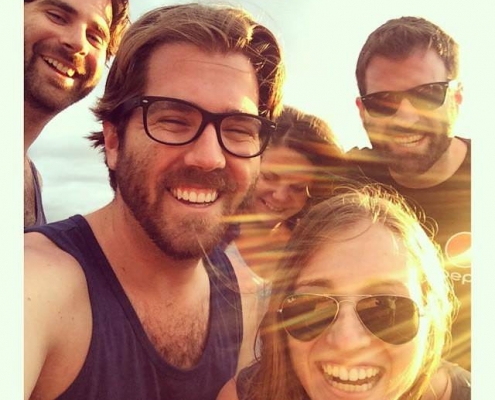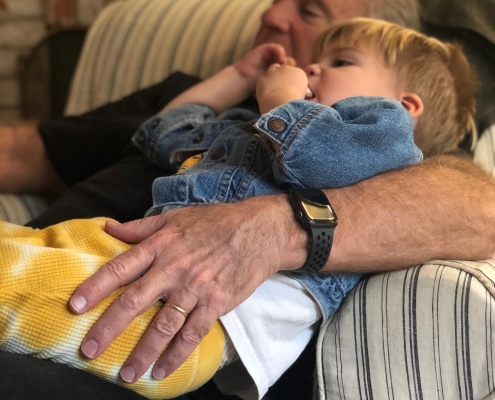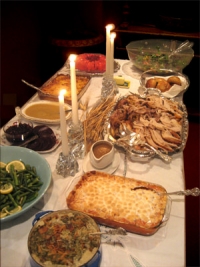Tag Archive for: happiness

One Foot In Front of the Other
It's hard to be happy all of the time.
People say I’m an optimist… and, by most accounts, including my own, I would have to agree. Some days however, getting out of bed is not something that I look forward to. On those days, life is…

United We Go – Up Up and Away
I’ve got a lot bouncing around in my head lately, and although it's about our country, very little of it has to do with Washington. Fact is, I think it has something to do with what I see as the state of our "United" States.
Is Dr. Dao of…

Building A Happy Family – 3 New Lessons
Even though I've written a book about parenting, the process of building a happy family continues to evolve, and after raising four children over a period of thirty-six years, there are a few things that stand out as lessons learned. Here…

Grandparenting
Well. It happened. We became grandparents at the end of December.
Of course, nothing went according to plan. We were expecting this grandson after The Holidays - in early January - right about now. We were mentally preparing…

Prescription For a Happy Thanksgiving
There’s been a lot of complaining going on recently… the unknown (election), the weather (extreme), the world (wars, immigration, Brexit).
It’s so bad even Kanye can’t handle it.
But tomorrow is Thanksgiving, and earlier today I decided…

The Homework Heretic
It’s back-to-school time and homework is in the news. Mrs. Brandy Young, a brilliant second-grade teacher in Godley, Texas sent a note home to parents explaining that her students would have no “formally assigned” homework this year.…

Our Son Says “We’re Pregnant!”
Our son Ben recently called and said “We’re pregnant!” JoAnn, my wife, was very quick to point out that Ben’s wife, Kelsie is pregnant and that they are having a baby. After all, JoAnn asks, “Is Ben nauseous all the time?” “Are…

Self-Respect – A Key Parenting Ingredient
Teaching our children respect for others starts with teaching them respect for us, and this can be done without sacrificing our children's individuality or personal development. First, we have to believe in the importance of our role as parents,…

Three Important Parenting Questions
As JoAnn and I began navigating the parenting waters, we found that, in the process of defining our values, we were also determining some basic rules for running the family ship "our way." These were our first three basic questions:
Is…

Please Participate in This Relationship Survey
Every relationship is different - and there are key elements in successful (and unsuccessful) marriages that I'm trying to identify for my next book. By taking Part 1 of this quick, ten-minute, survey you would be helping me identify some…
